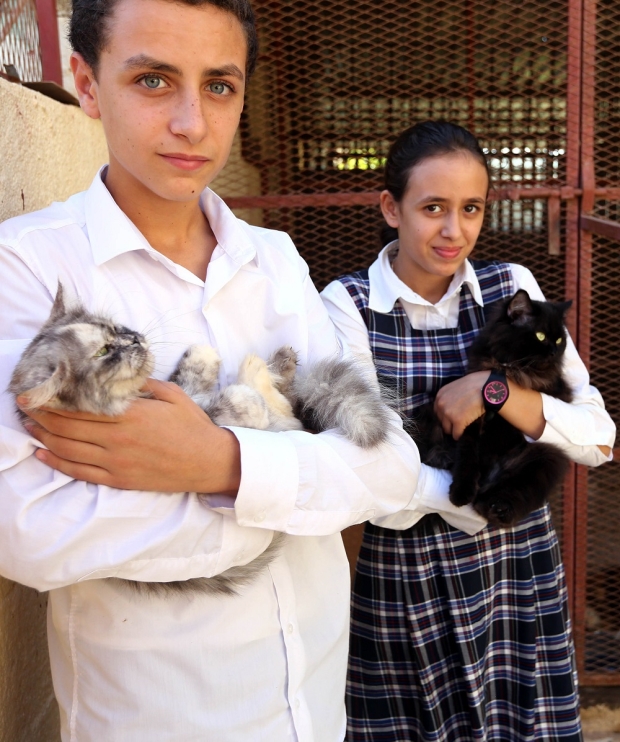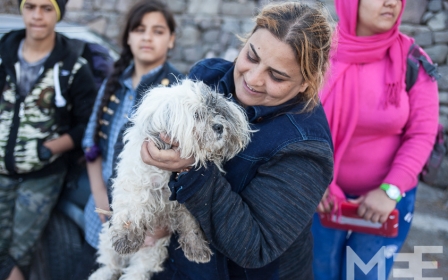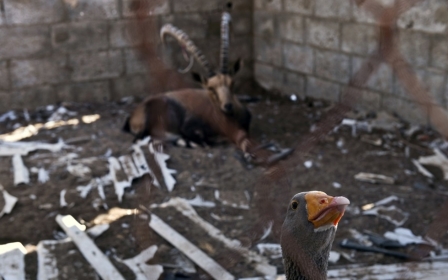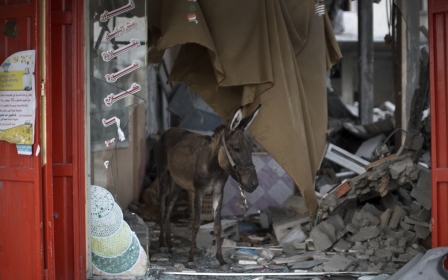Meet the Libyan vet who saved more than 250 pets from the fighting
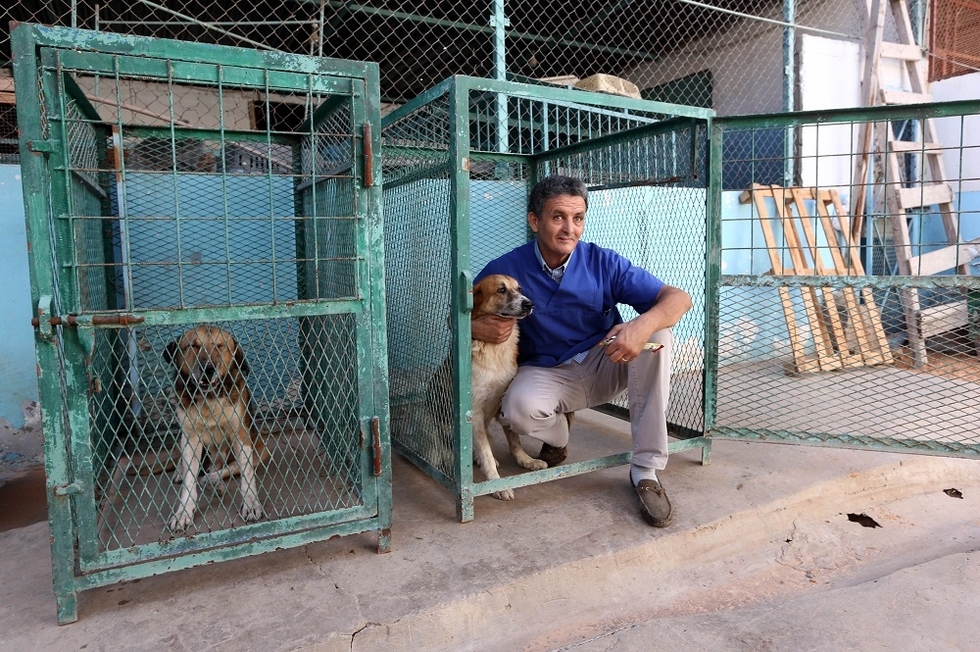
By Rim Taher
When evacuated foreigners left hundreds of pets behind at the outbreak of Libya's 2011 revolution, Tripoli vet Jalal Kaal braved missiles, militia checkpoints and long terrifying drives to reunite them with their owners.
"If I had to, I would do it again," says Kaal, a tall, slim 50-year-old man with smiling eyes.
When the popular uprising against longtime ruler Moamer Gaddafi broke out in February 2011, many foreigners had to leave suddenly and were unable to take their pets with them, Kaal explains.
In the chaos of the evacuations of diplomats and foreign workers four years ago, several called him from the airport to ask if he could collect their pets and take them in.
As Gaddafi cracked down on protesters in and around the capital, Kaal and an assistant drove to several neighbourhoods to find the stranded animals.
In total they rescued some 250 pets, including 200 cats and dogs, tortoises, guinea pigs and a parrot named Charlie.
He gave them shelter inside his practice, in a southwestern suburb of Tripoli, right next door to a building previously used by Gaddafi's intelligence services.
"Missiles were falling so close that the clinic's ceiling fell in," he says.
But he braved the rockets and bombs raining down around the building to reach the clinic to feed and tend to his "refugee" pets.
"With my children, we'd take the animals out in groups for a walk and a cuddle," explains Kaal.
'Evacuation missions'
An assistant from Chad helped him throughout the adventure that year until October, when Libya's NATO-backed revolutionaries declared the country's "liberation".
"He slept in the clinic, watching over the animals and feeding them, and cleaning," he says.
"But I really couldn't have done without him when we started our missions to evacuate the animals" a few weeks into the revolution, he adds.
Kaal and a Libyan colleague would drive 300 kilometres across the border to the Tunisian airport at Djerba, while his Chadian assistant stayed at the practice to look after the remaining animals.
The pet owners' employers had organised for shipping companies to evacuate their animals by plane, Kaal says, but their plans fell through after the Tripoli airport closed due to clashes.
Soon the only option was to drive the animals out of the country and to Tunisia, where he had coordinated with a local vet to help with paperwork at the border.
"From February to October 2011, I drove 15 times from Tripoli to Djerba", from where the pets could be flown back to their owners, Kaal says.
"All the animals in my care were returned to their owners in good health," he says.
The only exception was Charlie the parrot, entrusted to him by a Venezuelan woman before she left. He and his family looked after it at home.
Charlie "roamed freely around the house. He spoke so well that it felt like he was taking part in our conversations. Everybody loved him."
But a few days before Tripoli was taken over by the revolutionaries, "a missile fell right next to the house. The explosion blew the windows open, and he flew away."
'Most terrifying day'
Kaal says he had never been as scared as one night returning to Tripoli from the border.
At a pro-Gaddafi checkpoint that was regularly targeted by revolutionaries in the coastal town of Zawiya, militiamen "told us to drive with our lights off so we didn't become targets".
"A trip from Djerba to Tripoli that usually doesn't take more than four hours took us 14," he says. "It was the longest, the most tiring and the most terrifying day."
"It was only when we got back to Janzur" on the outskirts of Tripoli "that we looked at each other and burst out laughing".
Today - with Libya divided between rival governments and still plagued by violence - the clinic's rooms are run down and the cages that housed the animals are empty.
"I need to break it all down and build it up again to be more modern," Kaal says.
"Some of the pet owners still haven't paid their bills but... nothing is better than the joyful tears of the owners I reunited with their pets."
Despite his feat, the vet remains modest.
"I'm terrified by war," he says. "I've never even touched a handgun.
"I can tell you, I'm actually a great scaredy-cat."
Middle East Eye propose une couverture et une analyse indépendantes et incomparables du Moyen-Orient, de l’Afrique du Nord et d’autres régions du monde. Pour en savoir plus sur la reprise de ce contenu et les frais qui s’appliquent, veuillez remplir ce formulaire [en anglais]. Pour en savoir plus sur MEE, cliquez ici [en anglais].


